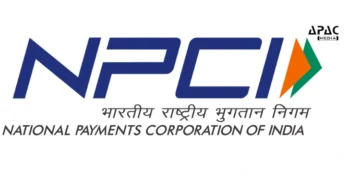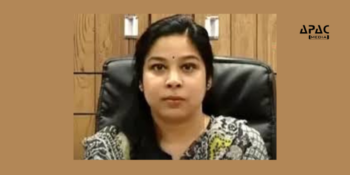In an exclusive conversation with APAC News Network and CXO News, Sai Prasad Parameswaran, CTO of IoT and Digital Engineering at TCS, discusses the company’s vision for IoT and its innovative project, while outlining the challenges faced by Indian enterprises in adopting IoT.
What is your vision for IoT and Digital Engineering (DE) within TCS? How do you see IoT evolving over the next five years, and what role will TCS play in this transformation?
Through its “Bringing Life to Things” framework, TCS envisions a future where IoT and Digital Engineering are central to driving a connected, intelligent, and sustainable world. As AI and Generative AI continue to advance, the ability to harness vast amounts of structured and unstructured data will become critical. IoT will play a foundational role in gathering and processing this data, fuelling smarter, more adaptive AI systems.
TCS is at the forefront of this transformation, combining the power of industrial, cognitive, and Generative AI to create intelligent ecosystems and enable autonomous operations. With technologies like Omniverse and digital twins, TCS empowers clients to visualize and experiment with real-life simulations that follow the laws of physics. By delivering value across the product lifecycle—from engineering smart products to streamlining manufacturing and creating connected services—TCS helps businesses unlock exponential value.
Leveraging strategic partnerships with leaders like Microsoft, AWS, and Nvidia, TCS has already demonstrated success, such as doubling the efficiency of complex automotive software testing through fine-tuned Generative AI models. This vision underscores TCS’s commitment to innovation and delivering transformative outcomes for its customers worldwide.
Can you give examples of a few projects or technologies that TCS is currently working on in IoT DE? Can you discuss a recent use case where TCS helped a client achieve significant results using IoT and DE in India?
TCS is addressing one of the biggest challenges in IoT and Digital Engineering—balancing computing power between the cloud and the edge. Many real-world use cases demand AI-driven insights closer to the edge, where devices have less computing power. To tackle this, TCS has developed innovative solutions, including patented technologies that allow large AI models to run efficiently on low-power edge devices.
TCS is also advancing sustainability efforts with solutions like TCS Clever Energy, which helps enterprises monitor and reduce energy consumption and carbon emissions. Partnering with Landis+Gyr, a global leader in energy management, TCS is delivering flexible and impactful energy efficiency solutions for utility companies.
In addition to these initiatives, TCS showcased its innovation in digital health at the Tata Mumbai Marathon 2025 with the launch of the “Future Athlete—Digital Twin of the Heart” solution, first introduced at the New York City Marathon 2024. This groundbreaking technology replicates an individual’s heart, providing personalized insights and advanced data analysis beyond traditional fitness wearables.
What are the biggest challenges Indian enterprises face when adopting IoT solutions? How does TCS address interoperability and integration issues in diverse IoT ecosystems?
Indian enterprises face two pressing challenges: staying updated with rapidly evolving technologies and creating groundbreaking solutions that can position India as a global leader in IoT innovation. TCS is dedicated to helping businesses address these challenges by providing cutting-edge tools, technologies, and solutions. Our offerings include specialized assessment frameworks that tackle critical issues such as interoperability and integration, ensuring seamless adoption of advanced IoT systems across diverse industries.
A shining example of this commitment is our recognition at the CII Digital Transformation (DX) Awards 2024 for our work with the Rail Coach Factory in Kapurthala. TCS was honored for delivering a resilient, innovative, and sustainable digital transformation solution that modernized operations and strengthened the Indian Railways. This initiative not only exemplifies TCS’s ability to develop world-class, future-ready transportation systems but also highlights our role in enabling Indian enterprises to lead in IoT and digital engineering on a global scale.
How is TCS preparing to address workforce challenges, such as reskilling, in the rapidly evolving IoT space?
Getting the right skill set is extremely important, especially when you are engaged in solving complex customer problems. To upskill our workforce, we have multiple training and reskilling programs, Generative AI is the buzzword in the tech industry today, and we have ensured that all technical teams have base level training in GenAI, and experts are skilled at advanced levels. We also sponsor our associates to take up advanced courses such as industrial analytics with our COIN (COINnovation) academic partner IIT Madras and Omniverse with Nvidia.
What emerging technologies do you believe will significantly influence IoT in the coming years?
Emergent technologies like Generative AI are redefining the boundaries of AI capabilities, opening new opportunities across industries. Generative AI is no longer just about content creation—it is now a driving force behind intelligent automation, dynamic decision-making, and personalized customer experiences. For example, in product design, Generative AI can simulate multiple design variations based on specific criteria, drastically reducing the time to market. This is particularly impactful in industries like automotive, where AI can generate optimal designs for aerodynamics and energy efficiency.
Agentic AI and Physics-Informed AI are poised to revolutionize the entire product lifecycle, from research and development to end-user services. For instance, Agentic AI can be embedded into IoT devices, enabling them to make autonomous decisions based on real-time data, such as optimizing energy usage in smart buildings. Meanwhile, Physics-Informed AI incorporates the laws of physics into AI models.
What advice would you give to organizations looking to adopt IoT solutions effectively?
AFor organizations adopting IoT solutions, keeping pace with advancements in computing technologies is crucial. This requires a dual strategy: innovating on existing technologies to maximize their potential while simultaneously investing in new, transformative solutions to stay ahead of the curve.
For example, an enterprise operating a smart factory might enhance its existing IoT infrastructure by upgrading sensor capabilities or integrating edge computing to enable real-time decision-making on the shop floor. This ensures better productivity and efficiency from existing setups. Simultaneously, the same enterprise could explore investments in emerging technologies such as digital twins or AI-powered predictive analytics, enabling the factory to transition toward autonomous operations.
Organizations that adopt this balanced portfolio approach can unlock both immediate benefits—such as cost efficiency and improved performance—and long-term advantages like resilience, adaptability, and leadership in the IoT-driven future.










































































Discussion about this post